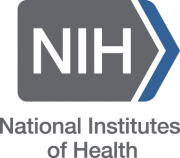Posted on September 25, 2020
Source: NIH

"The National Institutes of Health has awarded approximately $10 million to support implementation science research to advance the goals of Ending the HIV Epidemic: A Plan for America, which aims to reduce new HIV diagnoses in the United States by at least 90% by 2030. NIH, through its 17 Centers for AIDS Research (CFARs) and six NIMH AIDS Research Centers(ARCs), serves a critical role in this initiative by collaborating with partners in local communities on research to determine how best to leverage existing, highly effective tools to diagnose, prevent and treat HIV."
"The new awards provide one to two years of supplemental funding to 17 of the 23 CFAR and ARC programs. Some of the new awards continue and expand on pilot projects funded in 2019 to develop locally relevant plans for diagnosing, treating and preventing HIV in areas with high rates of new HIV diagnoses, and provide funding for two years. Others support new one-year projects, including seven projects focused on reducing barriers to the use of PrEP (pre-exposure prophylaxis) among cisgender heterosexual women. Uptake of PrEP, a highly effective HIV prevention method that involves taking a single daily pill containing two HIV drugs, remains low among U.S. women. These new projects aim to determine how best to implement strategies to help cisgender heterosexual women learn about PrEP, decide if this HIV prevention tool is relevant for their lives, access PrEP, and sustain PrEP use for as long as desired."
"Additional one-year projects focus on topics including connecting people living with HIV to treatment and health care services, reducing HIV stigma, and understanding how different communication strategies and delivery platforms can be leveraged to increase use of HIV testing, prevention, and care services. A complete list of awards is available online."